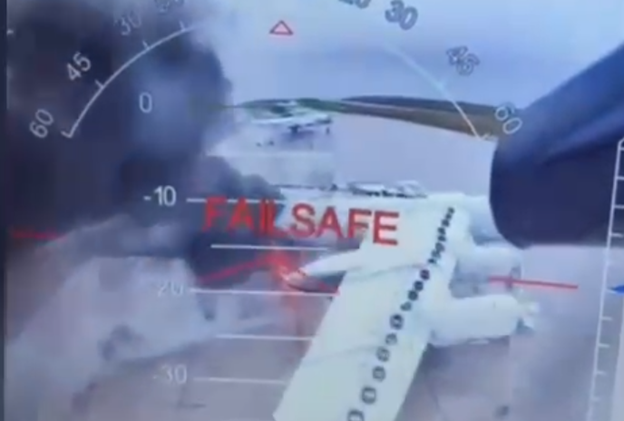
Russian authorities are weighing whether to reward residents who tried to stop Ukrainian drones by throwing stones at them during a mass drone strike on Russian air bases, Governor of Russia’s Irkutsk Oblast Igor Kobzev said on June 2.
The Security Service of Ukraine (SBU) has claimed responsibility for the coordinated strike, which it says hit 41 Russian military aircraft across four strategic airfields, including Belaya in Irkutsk Oblast, thousands of kilometers from the Ukrainian border.
“In the operational staff, we will evaluate the actions of concerned citizens who tried to interfere with the work of drones and decide on their recognition,” Kobzev wrote on Telegram, praising locals for what he called their “non-indifference."
Videos that surfaced on Russian social media earlier showed civilians in Irkutsk hurling rocks at first-person-view (FPV) drones flying out of trucks, the same kind of makeshift launch systems Ukrainian intelligence operatives used in a bold and destructive operation on June 1.
Named “Spider web,” the operation involved smuggling drones hidden in truck-mounted wooden cabins deep into Russia. At the designated moment, the cabin roofs were opened remotely, releasing swarms of explosive-laden FPV drones toward high-value bombers.
The SBU later claimed that the strike caused $7 billion in damage and disabled 34% of Russia’s cruise missile carrier fleet.
The Russian Defense Ministry later acknowledged the attack, calling it a “terrorist act,” and confirmed that aircraft caught fire at multiple air bases, including Irkutsk and Murmansk.
 The Kyiv IndependentAnna Fratsyvir
The Kyiv IndependentAnna Fratsyvir
